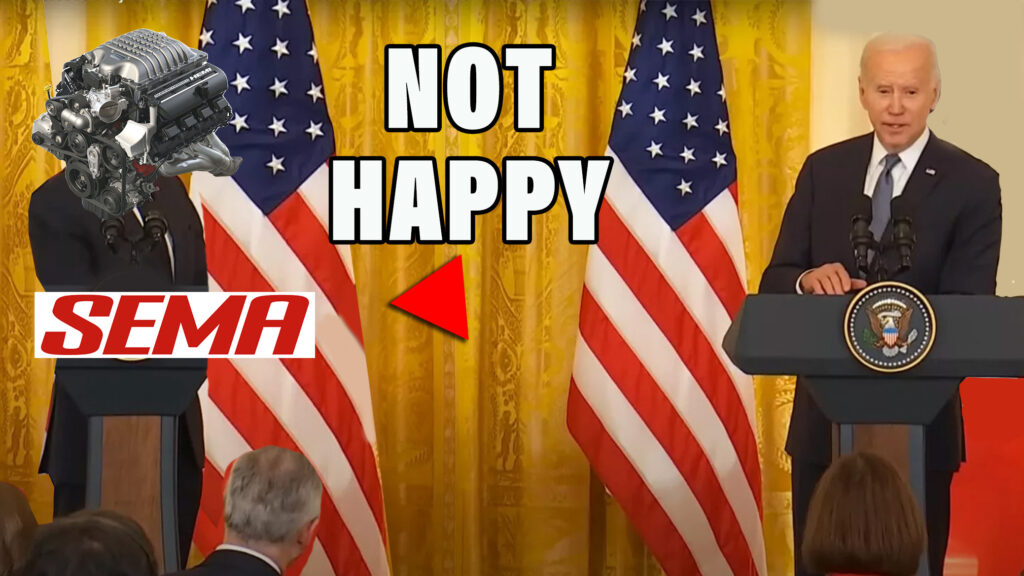It’s a classic example of a ripple effect. The U.S. government is proposing strict new pollution rules that could radically change the makeup of the new car market by pushing consumers towards electric vehicles. But the effects on businesses and jobs will stretch far and wide, including to the tuning and aftermarket industry, and the tuners aren’t happy.
Joe Biden’s administration has stopped short of proposing an all-out ban on cars with combustion engines in the short term. But it’s heading down that road with proposed new emissions targets that would come into force in 2027 and get progressively tighter until they reach a fleet-wide average of 82 grams of carbon dioxide per mile for the 2032 model year. Automakers would need to slash their average emissions by 13 percent every single year over that five-year period, although medium-duty vehicles would only need to hit 275 grams by the 2032 deadline.
Those are some lofty goals, and are clearly designed to push automakers towards making more electric vehicles. The EPA (Environmental Protection Agency) thinks they could result in EVs accounting for 67 percent of new light-duty vehicles and 46 percent of medium-duty rides by 2032.
Mike Spagnola, CEO of SEMA (Speciality Equipment Market Association), which has over 7,000 members from across the tuning and aftermarket industry, said he was in favor of efforts to improve emissions, but is worried about the effects the proposed limits could have on the more than 1 million U.S.-based automotive manufacturing jobs the tuning industry helps support.
Related: U.S. Proposes Toughest-Ever Emissions Rules To Make 67% Of New Car Sales Electric By 2032

“We fully support the efforts to reduce greenhouse gas emissions, but actively advocate for the ability of consumers and the marketplace to choose what works best for them,” Spagnola said in a statement. “There are many options on the road to zero emissions and we feel it is crucial for government policy to remain technology neutral,” he added, noting that the aftermarket industry has been built around the combustion engine.
But Spagnola also acknowledged that sections of the aftermarket industry had grasped the nettle and were performing EV conversions on older cars and making parts available for those kinds of conversions. His concerns over job losses are real enough, but the tuning and aftermarket industry isn’t going to die out because cars switch wholesale to electric power. There’ll always be drivers wanting to improve the design and handling of their cars, and besides, you only have to see some of the incredible creations displayed at SEMA every year (many of which are now electric) to know that for the thousands of creative and motivated people in the tuning industry, there’s no problem that can’t be overcome.




